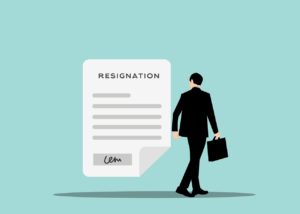Economists Call It “Induced Demand,” Entrepreneurs Refer to It as a “Learning Curve” – But the Lesson is the Same
Decades ago, California attempted to alleviate and lighten heavy traffic congestion on its highways by adding more lanes. Upon completing construction, the new thoroughfares opened, and, congestion significantly dissipated. Then, gradually, traffic became heavier and heavier. Eventually, the very problem the state tried to tackle returned, but there were more vehicles than before, and traffic moved even slower. The new travel lane additions didn’t solve the problem – they only made congestion worse.Economists call this phenomenon “induced demand.” This term is a fancy way to say it entices and causes more people to use something. The concept of induced demand, first proposed by economist Anthony Downs in his 1982 book “Stuck in Traffic,” suggests that increasing road capacity may not diminish traffic congestion due to the Triple Convergence Theory. This theory posits that new capacity attracts three types of travelers: those who change routes, those who adjust their travel times, and those who switch modes of transportation to driving. These shifts in behavior lead to increased usage of the new capacity, negating the intended benefits of reduced congestion.
The lesson in the California road expansion project is simple – the state planned based on theory and had little to no quantifiable data that widening the highways would work. Although it seems perfectly logical to add additional lanes to lessen traffic congestion, the reaction by motorists wasn’t fully considered. And, it’s this very intention that can land entrepreneurs into considerable trouble.
Why Entrepreneurs Should Carefully Experiment Before Fully Committing
Growing a business can be a challenging process, and it’s easy to make mistakes that can cost time and money. So, you need to be prepared and understand a few things before you attempt to move forward. Now, here are some strategies entrepreneurs can use to avoid expensive or time-consuming mistakes when growing their businesses:Start with thorough market research. Before expanding, conduct detailed market research to understand your target audience, competitors, and industry trends. This will help you make informed decisions and avoid costly mistakes.
Then, take the time to develop a solid business plan. Create a comprehensive business plan that outlines your growth strategy, target market, financial projections, and potential risks. This will help you stay focused and make better decisions. Next, learn to lean on your strengths and do the following:
- Focus on your core competencies. Stick to what you do best and avoid diversifying too quickly. Expanding into new markets or products can be risky and expensive.
- Invest in technology. Leverage technology to streamline operations, improve customer experience, and increase efficiency. This can help you scale your business without incurring significant costs.
- Build a strong team. Hire the right people and invest in their development. A strong team can help you avoid costly mistakes and drive growth. Remember, to succeed, you need to rely on others to help you accomplish your ultimate goals because you can’t do it all on your own.
- Monitor cash flow. Keep a close eye on your cash flow to ensure you have enough money to cover expenses and invest in growth. Try to avoid debt as much as possible. The less you owe, the more options you’ll have. Freeing up resources will do wonders when you experience leaner times.
- Be agile and adaptable. Be prepared to pivot your strategy if market conditions change or if you encounter unexpected challenges. Unfortunately, too many entrepreneurs become stubborn and refuse to make adjustments, typically leading to unpleasant results.
- Learn from mistakes. Use mistakes as learning opportunities and adjust your strategy accordingly. When you do this, you’ll build a healthy habit. One that will allow you to reevaluate situations and change direction to avoid bad results.
- Seek professional advice. Consult with experts, mentors, or advisors who can provide valuable insights and guidance. It’s highly advisable to speak with an experienced business consultant who can provide you with the right advice.
By following these strategies, entrepreneurs can avoid expensive or time-consuming mistakes and increase their chances of successfully growing their businesses.
Want to Accomplish More?
Do you want your company to grow faster and earn more while you spend more time with your family doing all the things you started your business to do?We can make that dream a reality. Give us 30 minutes and we will show you how to get your life back. Skeptical? Good! Put us to the test.
You can call us for your free appointment at (602) 541-1760, or, if you prefer, Waters Business Consulting Group to learn more about us and the services we offer.



